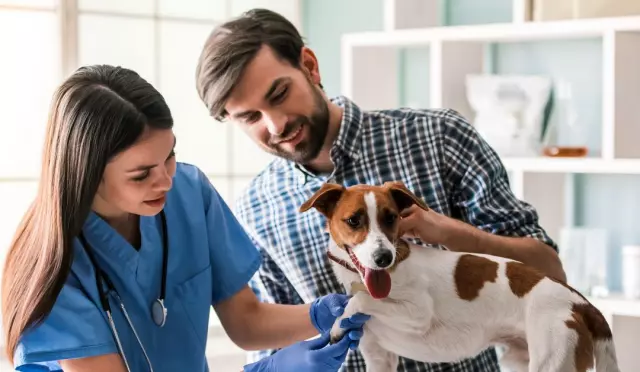The Benefits of Proactive Healthcare
1. Early Detection and Treatment of Diseases
Regular veterinary examinations provide the earliest opportunity to identify health issues before they become clinically apparent. During routine visits, veterinarians perform comprehensive physical assessments, laboratory analyses, and imaging studies that reveal subtle physiological changes. Detecting abnormalities at this stage allows clinicians to initiate therapeutic interventions while disease burden remains low.
Key advantages of early identification include:
- Rapid initiation of targeted medication, which often results in higher cure rates.
- Reduction of disease progression, limiting organ damage and preserving function.
- Decreased need for invasive procedures, leading to lower procedural risk.
- Lower overall treatment expenses, as interventions are less intensive and shorter in duration.
When a condition is caught early, treatment protocols can be tailored to the specific stage of disease, optimizing dosage and minimizing side effects. For example, detecting chronic kidney disease at Stage I enables dietary modification and renoprotective agents that slow decline, whereas later stages may require dialysis or euthanasia. Similarly, early diagnosis of neoplasia permits surgical removal before metastasis, dramatically improving survival statistics.
Consistent monitoring also establishes baseline health parameters for each animal. Comparative analysis of sequential test results highlights trends that might escape a single snapshot, reinforcing the veterinarian’s ability to distinguish between transient anomalies and genuine pathology. This longitudinal perspective underpins precise, evidence‑based decision‑making and reinforces the overall health management plan for the pet.
2. Prevention Through Vaccinations and Parasite Control
Regular veterinary examinations provide the opportunity to assess immunization status and to implement parasite‑control protocols before clinical signs appear. During each visit, the veterinarian reviews the pet’s vaccine history, updates records, and administers any missing inoculations according to species‑specific schedules. Timely vaccination reduces the incidence of contagious diseases such as canine parvovirus, feline calicivirus, and rabies, which can otherwise progress rapidly and become difficult to treat.
Effective parasite management relies on a combination of preventive products and environmental measures. Common strategies include:
- Administration of monthly oral or topical ectoparasiticides to prevent fleas, ticks, and mites.
- Use of long‑acting endoparasiticides (e.g., a single dose that protects against intestinal worms for up to three months).
- Routine fecal examinations to detect subclinical helminth infections and adjust treatment plans.
- Regular grooming and cleaning of bedding, bedding, and living areas to minimize reinfestation.
Integrating vaccinations and parasite control into the schedule of routine check‑ups ensures early identification of gaps in protection, allowing immediate corrective action. This proactive approach minimizes disease risk, supports overall health, and reduces the need for emergency interventions.
3. Monitoring Overall Health and Wellbeing
Regular veterinary examinations provide a systematic assessment of an animal’s physiological status, allowing practitioners to track trends in weight, body condition, dental health, and organ function. By documenting these parameters over time, veterinarians can distinguish normal variations from early signs of disease, such as subtle weight loss, changes in coat quality, or altered activity levels.
Key elements of health monitoring include:
- Body weight and condition scoring to detect obesity or cachexia.
- Dental inspection for plaque accumulation, gingivitis, or tooth loss.
- Cardiovascular and respiratory evaluation through auscultation and pulse measurement.
- Laboratory testing (blood chemistry, urinalysis) to reveal organ dysfunction before clinical symptoms appear.
- Behavioral observation, noting shifts in appetite, lethargy, or aggression.
Consistent data collection creates a baseline against which deviations are measured, enabling prompt intervention and improving long‑term wellbeing.
4. Addressing Behavioral Issues
Behavioral changes often precede visible signs of illness. During routine examinations, veterinarians assess activity levels, aggression, anxiety, and feeding habits, distinguishing normal variation from pathology. Early identification of such patterns enables prompt diagnostic testing, reducing the time between onset and treatment.
Effective management of identified issues involves:
- Detailed history taking to correlate behavior with environmental factors and possible medical conditions.
- Physical examination focused on pain points, sensory deficits, and neurological status that may influence conduct.
- Diagnostic imaging or laboratory work when behavior suggests underlying disease, such as joint disorders causing reluctance to move or endocrine imbalances leading to irritability.
- Development of a tailored behavior modification plan, which may include training, environmental enrichment, or pharmacological support, coordinated with the veterinary team.
Consistent monitoring of progress through follow‑up visits confirms whether interventions address the root cause or if further investigation is required. This systematic approach ensures that behavioral concerns contribute to the broader goal of detecting disease at its earliest stage.
5. Building a Strong Bond with Your Veterinarian
Establishing a trustworthy relationship with your veterinarian enhances the effectiveness of routine examinations and accelerates the identification of health issues. Consistent communication allows the professional to recognize subtle changes in behavior, appetite, or mobility that might signal the onset of disease.
- Schedule appointments at regular intervals and keep them even when the pet appears healthy. Predictable visits create familiarity for both animal and owner.
- Provide complete medical history, including past illnesses, vaccinations, dietary habits, and any behavioral observations. Detailed records enable the vet to compare current findings with previous baseline data.
- Ask specific questions about observed symptoms or preventive measures. Direct inquiries demonstrate engagement and give the veterinarian insight into the owner’s concerns.
- Follow recommended treatment plans and preventive protocols without deviation. Adherence confirms reliability and encourages the vet to invest additional attention in monitoring.
- Offer feedback after each visit regarding the pet’s response to recommendations. Constructive updates help refine future examinations and tailor preventive strategies.
A collaborative approach reduces uncertainty, encourages proactive care, and positions the veterinarian as a partner in maintaining the animal’s well‑being. The stronger the bond, the more swiftly early signs of illness can be recognized and addressed.
